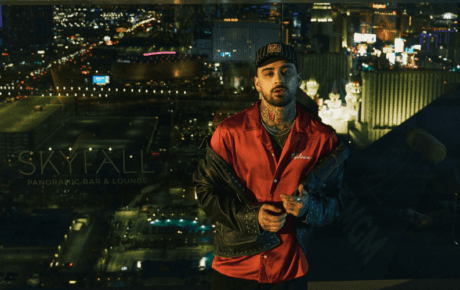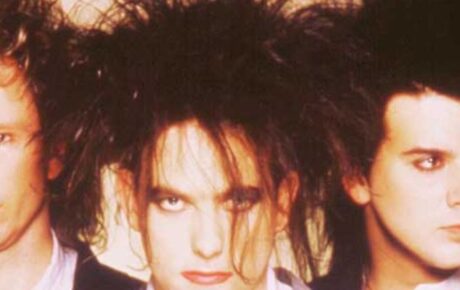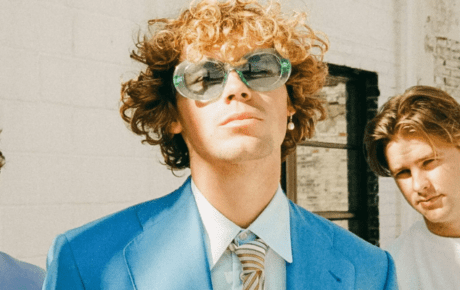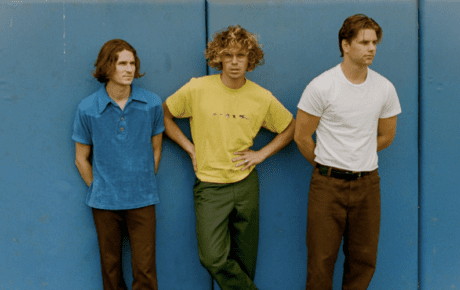It’s not hard to see why Kendrick Lamar is hailed as one of the most influential rappers of all time. A voice of his generation, the California rapper has made history with his storytelling, shining a light through the cracks of broken glass to reveal the exposed beauty that lies within the shards. His work has earned him 14 Grammy Awards, 6 Billboard Music Awards, 11 MTV Music Video Awards, a Generational Icon Award from the Californian Senate and even a Pulitzer Prize for Music, becoming the first hip hop artist to do so.
Across five studio albums and multiple mixtapes and EPs, Lamar’s discography has lent itself to many activist events, rallies, and protests, with fans finding anthems in his raw and confrontational lyrics. In celebration of the surprise release of his latest album GNX, we travel through Lamar’s outstanding legacy and see just why he’s one of the greatest to ever do it.
Section.80 (2011)
The debut album from Lamar positioned itself as a concept album, taking an inward look at the millennial generation and the crack epidemic that surged throughout the 80s in the United States (referencing that as the reason drugs are so popular for his generation). It was Lamar writing about what he knew best; what he had grown up around and witnessed in the society he lived in, and it was so beautifully raw at times that the line between fiction and reality became hard to distinguish. After Tupac came to him in a dream (under the guise of his birth name Lesane Parish Crooks), and after a close friend of his was sentenced to jail for 25 years, Lamar felt compelled to create the album and have it as organic as possible, admitting to leaving songs unfinished for extended periods of time and working in his mother’s kitchen.
Section.80 was the first album under Top Dawg Entertainment, a label that Kendrick would stick with for majority of his career, and while the rapper had a bunch of mixtapes already under his belt, the album truly put him on the map as a breakout hip hop star. Finding a way to understand his childhood in Compton while tackling deep-rooted systemic issues, Section.80 only scraped the surface of the talent Lamar possessed and the world was anticipating more.
good kid, m.A.A.d city (2012)
Following on from Section.80’s success, Lamar looked further into the cracks and created another concept album that dove deeper into his teenage experience in Compton. Hailed as one of his best bodies of work, GKMC turns elements of drug infestation and habits, gang lifestyles and crime into something strangely poetic. It brought smoothness to the world of West Coast hip hop and G-funk, and further strengthened Lamar as a prophet of his own kind.
With guest features from Drake, Dr. Dre, Jay-Z and fellow Top Dawg labelmate Jay Rock, GKMC earned Lamar five Grammy nominations, including Album of the Year. It continues to appear on a number of Best of … lists and in 2014 was even reported to have been studied in a composition class at a university in Georgia. Singles ‘Bitch, Don’t Kill My Vibe’, ‘Swimming Pools (Drank) and ‘Poetic Justice’ are some of Lamar’s biggest, cementing him as one of the greatest storytellers of our time.
To Pimp a Butterfly (2015)
Now that he had established himself enough as a writer, Lamar started to look for new ways he could tell a story musically. Teaming up with a number of high-profile hip hop producers, such as Pharrell Williams, Dr. Dre, Thundercat and Flying Lotus, To Pimp a Butterfly explored jazz, funk and soul elements and stretched itself to more of Black history rather than just the world within Compton. Inspired by historic sites during his trip to South Africa, such as Nelson Mandela’s jail cell on Robben Island, Lamar touched on politics, racial inequality, and institutional discrimination, making a commentary of Black culture as a whole and how it stood in modern society.
The album earned Lamar 7 Grammy nominations, including Album of the Year, and a win for Best Rap Album. It became the most critically acclaimed album of the year, as well as eventually the decade, and was ranked in the top 20 of Rolling Stones’ 500 Greatest Albums of All Time list. The hit single ‘Alright’ has become a symbol of hope in Black culture and was associated as the theme song for many Black Lives Matter protests in 2020.
DAMN. (2017)
By the time 2017 rolled around, Lamar had been on a successful peak for 5 or so years, and DAMN seemed to culminate all the good things from Lamar’s discography and throw them all into the one project. A concept from start to finish (or finish to start, depending on what version), not just in the lyricism but in the tracklist and imagery, the album worked with classic hip hop beats while also adding a contemporary conscious feel. Pop collaborators like Rihanna, Zacari and U2 helped to make Lamar feel more mainstream and cross him over from just hip hop into more broader genres and fields.
DAMN earned Lamar the iconic Pulitzer Prize for Music, the first non-classical or non-jazz album to do so in the award’s history. He was praised for the album’s composition and storytelling, a skill he had by now crafted to an absolute T. There was no denying Lamar was exceptional at what he did, but he somehow kept finding ways to top even his own records. DAMN won Best Rap Album at the Grammys and received yet another nomination for Album of the Year, and lead single ‘HUMBLE’ has gone on to become one of Lamar’s greatest songs, itself earning 13 awards, including 3 Grammys.
Mr. Morale & the Big Steppers (2022)
His first project since curating the soundtrack for Black Panther in 2018, MMTBS finds the King returning to his throne. He may have been out of the spotlight for a few years (we eventually find out he was starting his family), but he still had his eye on the culture that was unravelling, making the album fantastically relevant for someone who hasn’t exactly been around. Now a cool decade or so in the game, Lamar’s storytelling has gone from pointing fingers at his surroundings to pointing inwards at himself and the role he has to play in it all. Touching on cancel culture, generational trauma, infidelity, therapy and fatherhood, MMTBS paints a confronting picture of what our society has turned into.
The last album on Top Dawg Entertainment, MMTBS feels a lot like a goodbye as Lamar prepares for a shift of some kind. Now 34-years-old, his perspective and loyalties have changed, but his talents are only getting stronger. Incorporating psychedelic jazz, blues, free jazz and soul, the album feels up there as one of his most progressive and seems to shine a light on parts of ourselves we tried to hide or ignore. MMTBS received the largest first-day streams of 2022 on Apple Music, garnering over 60 million streams.
GNX (2024)
The sixth album from Lamar dropped unexpectedly on November 22. A succinct 12 tracks, GNX sees features from SZA as well as fellow West Coast rappers such as Roddy Rich, Hitta J3, Dody6 and AzChike. But perhaps the biggest surprise is the co-production from Jack Antonoff, a collab that might not have been predicted but certainly works.
GNX is the first album since Lamar’s departure from Top Dawg Entertainment and Aftermath Entertainment, and the first full project since his run of disses towards Drake back in May. And although none of those tracks made it onto the album, his feud with Drake still looms over the album. Most specifically in ‘Heart Part. 6’, which acts as both a witty reply and a dismissal of Drake’s diss of the same name.
It’s no surprise that critics are already hailing GNX as one of Lamar’s best works yet, not just for his devotion to spotlighting West Coast rappers but for his continued creative exploration as well as the expansive production. It’s been quite the year for K.Dot, and this record is definitely his victory lap.
Liked this article? Sign up to our UMUSIC newsletter to hear more from us!












